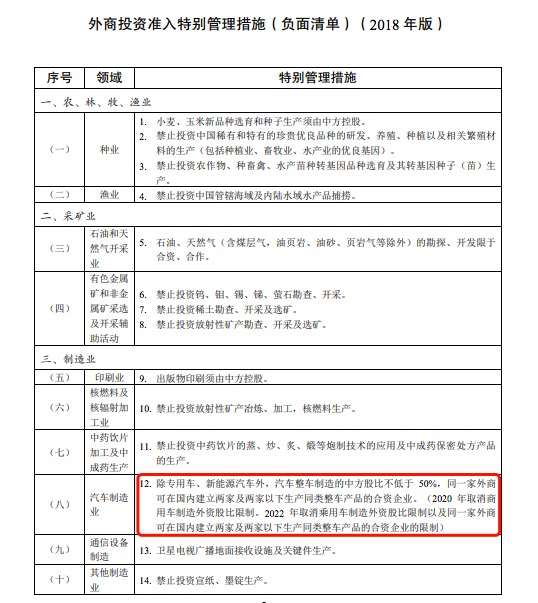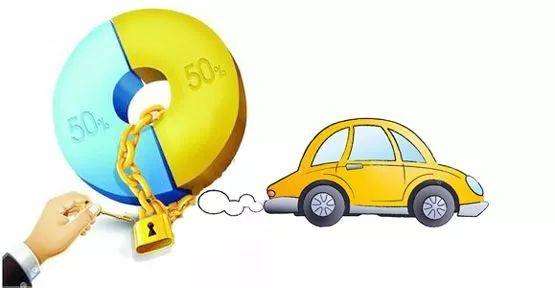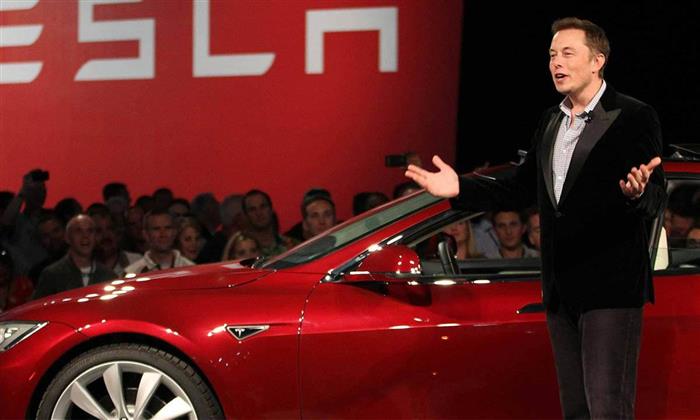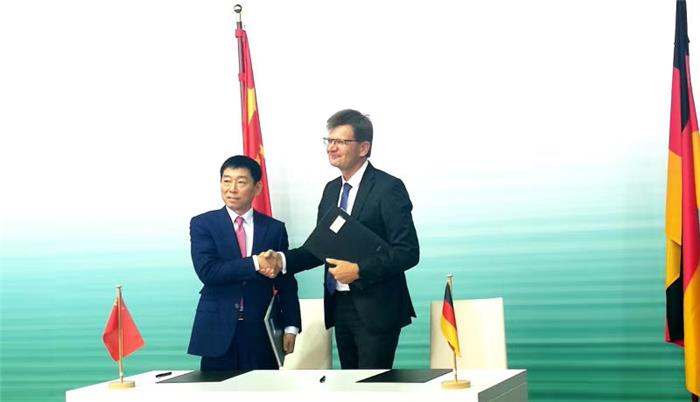A month ago (June 28th), the National Development and Reform Commission and the Ministry of Commerce issued the "Special Management Measures for Foreign Investment Access (Negative List) (2018 Edition)". One month later (July 28), the negative list was officially released. At the same time, the special management measures for foreign investment access (the negative list of foreign investment access) in the Foreign Investment Industrial Guidance Catalogue (Revised in 2017) will be abolished. The "Negative List of 2018 Editions" has been reduced from 63 to 48. A total of 22 areas have been opened up: one is to significantly expand the service industry, the other is to basically liberalize the manufacturing industry, and the third is to relax the field of agriculture and energy resources. In. Among them, in the field of automobile manufacturing, on July 28, the ratio of foreign-funded shares of special-purpose vehicles and new-energy vehicles will be lifted. In 2020, the restrictions on foreign-invested shares of commercial vehicles will be abolished. In 2022, the ratio of foreign-invested shares of passenger vehicles will be cancelled and there will be no more than two joint ventures. This is in line with the opening schedule of the auto joint stocks issued by the National Development and Reform Commission. Special-purpose vehicles and new energy vehicles become expanding pioneers At the 40th anniversary of China's reform and opening up, special-purpose vehicles and new energy vehicles have become the vanguard of the expansion of China's auto industry. Some analysts pointed out that from the order of the whole stocks than the restrictions, it can be found that the cancellation of the restrictions on the joint venture stocks in the auto industry in China is actually a strong to weak order. Choosing to use the special-purpose vehicle market and the new energy vehicle market as the entry point is to start reforms from the strong side. According to public data, in 2017, the output of special-purpose vehicles in China was 1.6 million units, a year-on-year increase of 38.7%. In the same period, China's overall automobile market output was 28.12 million units, a year-on-year growth rate of only 3.2%. At present, the market is mainly in the hands of state-owned enterprise groups such as FAW Group, Dongfeng Motor and China National Heavy Duty Truck. Foreign-funded enterprises are relatively disadvantaged in this field. Therefore, starting from the segment of the special-purpose vehicle segment, the release of the joint-stock ratio limit will not affect the market structure of the special-purpose vehicle, but will gradually open the entire industry to release the pace of the joint-stock ratio. At the same time, the opening of the joint-stock ratio in the field of new energy vehicles is also the same. In recent years, under the stimulation of a series of favorable policies and the transformation and upgrading of the automobile industry, domestic independent brands have been deployed in the new energy automobile market and have achieved certain results. In 2017, the cumulative sales of new energy vehicles in China reached 777,000 units, an increase of 53.3% year-on-year. It has become the world's largest producer and seller of new energy vehicles for three consecutive years. Although the huge market development potential has also attracted a large number of multinational auto companies to explore the layout of China's new energy auto market, compared with domestic independent brands, the layout of foreign auto companies in the entire industry chain is slightly slow. The first to open new energy auto stocks than the restrictions on the one hand indicates the confidence of China's government level for self-owned brand new energy vehicles, on the other hand, it is expected to stimulate the formation of healthy competition through the continuous influx of foreign capital. Cui Dongshu, secretary-general of the National Passenger Car Association, said: "At the same time that the joint venture stocks are more open than restrictions, the division of interests in the auto market will continue to be rebalanced. The competition in China's auto market will be more fully, and the efficiency of China's auto industry will be In the context of increasing scale, the stock ratio is more conducive to the further improvement of China's automotive technology." Foreign auto companies have already been gearing up This time, with the official implementation of the new negative list, it means that the foreign stocks in the special vehicles, new energy vehicles and the number of joint ventures are officially cancelled. Compared with the special-purpose vehicle market, the industry is obviously more concerned about the impact of the new energy auto stocks than after the release. Some insiders pointed out that the liberalization of automobile joint-venture stocks means that the policy threshold for foreign investment in building factories has been lifted, and the pace of future foreign-invested enterprises building factories in China, especially in the field of new energy vehicles, will accelerate. Just as the industry has been rumored that Tesla will build a factory in China, it has finally made substantial progress this year. In fact, after receiving the heavy news that the Chinese government will cancel the new energy joint venture stock limit in April this year, Tesla’s process of building a factory in China has suddenly increased. First, on May 10th, Tesla (Shanghai) Co., Ltd. was registered. Two months later (July 10th), Tesla’s head, Musk, went to China to sign a pure electric vehicle project investment agreement with Shanghai Lingang. The Tesla Super Factory (Gigafactory 3), which has an annual output of 500,000 pure electric vehicles, is located in Lingang. However, the signing of the investment agreement is only an intention of the two sides to actively promote, there is no clear timetable. After the policy barrier is over, Tesla will face multiple obstacles such as production qualification and capacity climbing in China. In addition, there are also views that joint-venture stocks are more liberal than restrictions. The number of foreign-funded enterprises that choose to establish new-owned enterprises in a short period of time is still a minority. Most enterprises will still tend to maximize profits by acquiring joint-stock company shares. New energy vehicles, the cost of capital and time are too high. Not long ago, the German luxury brand BMW chose to take the Great Wall Motor as one of its considerations. For BMW, the cooperation with Great Wall Motor, which has a mature manufacturing process and a strong SUV market base, can save huge costs, including not only economic costs, but also management costs and time costs. At the same time, compared with the joint ventures established over the past two decades, the joint venture between Great Wall and BMW as the first case after the release of new energy auto stocks has given rise to many new highlights. First of all, the previous joint ventures with foreign companies were state-owned enterprises or large state-owned enterprises. As a private car company, Great Wall Motors “has no joint venture qualificationsâ€. Secondly, it is because of this identity that the joint venture between Great Wall and BMW is no longer government-led. "Arranged marriage," but the result of long-term "free love" between the two sides. On April 18, 2016, Great Wall and BMW signed a confidentiality agreement for cooperation. The two sides began negotiations on joint ventures until February of this year, the two sides signed a letter of intent for cooperation, and then signed a joint venture contract in Berlin, Germany on July 10, which lasted more than two years. time. Last but not least, the share ratio of the two parties is still 50:50, but this is the result of the two sides' understanding and understanding of each other's strength and strategic intentions. Such joint venture stocks indicate that the new energy vehicle joint venture contract signed by the company will be the strength of the joint venture's ability to contribute. The 50:50 is no longer an untouchable policy “red lineâ€, and if the Chinese side is in the future, To occupy more voice and initiative in the joint venture, you first need to improve your own strength, which is equally important for commercial vehicles and passenger car companies that will be released one after another. The last 5 years of the passenger car According to the release order of the "Negative List of 2018", the restrictions on the share ratio of commercial vehicles will be cancelled in 2020. In terms of market share and sales volume, the cumulative sales volume of commercial vehicles in 2017 was 4.16 million units, an increase of 13.8% year-on-year, of which self-owned brand sales accounted for 96.6%, and joint-venture brand sales accounted for 3.4%. Zhong Rong, secretary-general of the China Automobile Dealers Association Commercial Vehicles Chamber of Commerce, said flatly: "The commercial vehicle sector is similar to the special-purpose vehicle market. Most of them are dominated by domestic independent brands, and the proportion of export vehicles is relatively high." As the final step of the joint venture, the foreign exchange ratio limit for passenger cars will be cancelled in 2022. “Actually, independent brands in the passenger car market are still relatively weaker than joint venture brands. Independent brands attract consumers through low selling prices, but the overall price/performance ratio is better for joint venture brands.†Cui Dongshu said frankly. It can be foreseen that when the foreign-investment ratio of the auto industry is fully liberalized, the competition in China's auto market will become more intense, the industry reshuffle will accelerate, and how to build a more competitive product in the 5-year period will become a self-owned brand. Its foundation is also a bargaining chip for its negotiations with foreign investors.
Our company manufactures many kinds of digital materials, including Water-based backlit Film(back print),Water-based backlit Film(front print),Eco-solvent Backlit Film(front print),Inkjet semi-transparent Inkjet Film, Clear Frosted Inkjet film, Clear Glossy Inkjet Film, Eco-solvent Clear Film, Window Glass Film,Laser Film and so on.We specialized in manufacturing printing media and have the professional experience and we occupy the Chinese domestic market over 50% share.
PET Film Material,pet film material images,polyester pet film materials Guangzhou Quanxu Technology Co Ltd , https://www.skysilmattingagent.com


